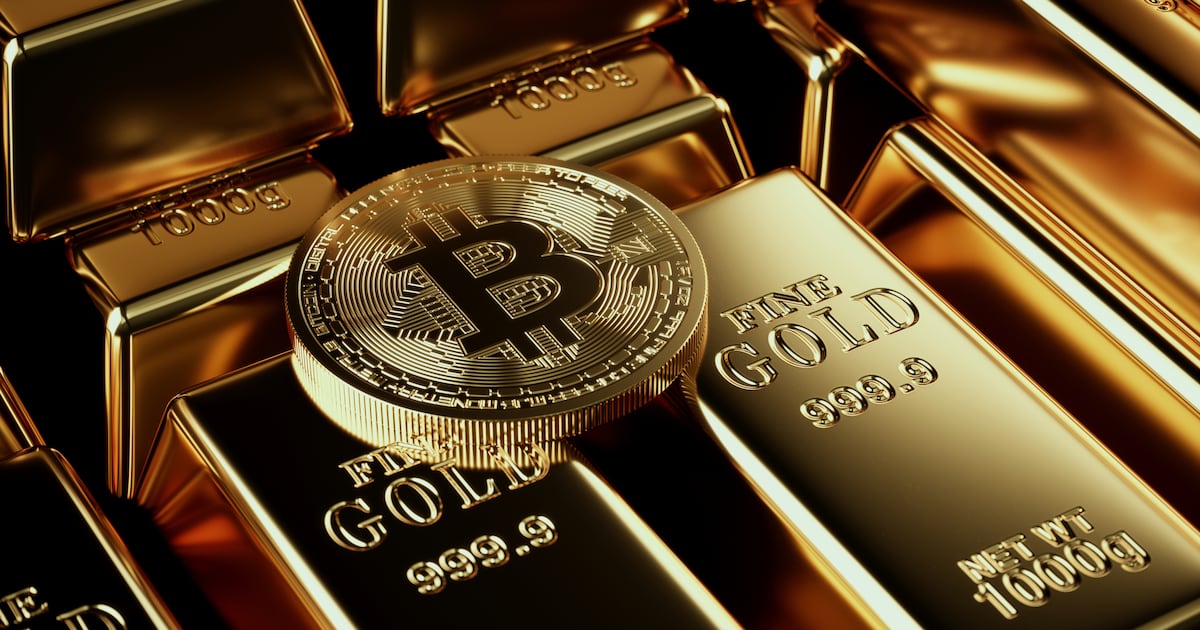Gold hit a record high in August, above $2,500 an ounce. But Bitcoin is still 20% from its all-time high. Here's what drives both assets, according to analysts.
Inflation, geopolitical turmoil and central bank purchases have pushed gold to record highs.
Whatever the reasons, “they've almost certainly come back to the fact that gold is a sustainable investment,” Rick Kanda, managing director of Gold Bullion Company, said in an emailed note to clients.
Bitcoin's proponents, including BlackRock CEO Larry Fink, have touted the cryptocurrency as digital gold.
Gold hit a record high in late August, rising above $2,500 an ounce, the largest cryptocurrency Still 20% off its highs.
So, what gives?
Bitcoin has other problems, including large sales from Germany and creditors of collapsed crypto firms, analyst Noel Acheson said.
She said it would be more sensitive to US political uncertainty.
Below are six factors driving gold — and what it means for Bitcoin.
Join the community to get our latest articles and updates
Financial uncertainty
Gold's status as a haven asset means that demand typically increases during economic crises and recessions. The resulting devaluation of major currencies also increased the demand for gold.
In general, Bitcoin falls into the same boat.
The dollar, as measured by the DXY dollar index, is near a one-year low. Historically, Bitcoin has moved in the opposite direction to the DXY, Acheson said.
For now, however, Bitcoin's price action is more closely tied to political sentiment.
Inflation
The Federal Reserve and other central banks are trying to contain rising global inflation.
“During inflationary periods for the economy, investors often choose gold over cash because of its stability,” said the Gold Bullion Company.
“This is because any devaluation of currencies as a result of inflation increases the price of gold in that currency, thus preserving the purchasing power of the investment.”
Bitcoin, although analysts call it an inflation hedge, has performed poorly during periods of high inflation.
As inflation in the US rose to a 30-year high of 9.1% from January to June 2022, Bitcoin declined 31% over the same period.
It was also around this time that the 15-year-old asset reeled from the dramatic collapse of crypto exchange FTX.
This suggests that unlike gold, Bitcoin is subject to severe inter-industry turbulence.
Diversity
The best investors tend to diversify their portfolios to protect against a sharp decline in any one asset.
Gold is seen as a hedge against economic and political uncertainty, while other asset classes are prone to fluctuations. Geopolitical risks, including conflicts in Gaza and Ukraine, have helped boost gold prices.
“Gold also provides a form of investment insurance,” the gold firm said. “Following the 2022 crypto crash, there has been an increased shift by investors from digital assets such as Bitcoin to physical assets such as gold.”
Countering bitcoin's digital gold narrative, bitcoin has more closely tracked riskier assets, including the tech-heavy Nasdaq index.
Therefore, demand for Bitcoin is likely to fall as investors' risk appetite declines during times of uncertainty.
Aswat Balakrishnan, lead at crypto consultancy Delphi Creative, said, “Bitcoin is clearly not an inflation hedge and a risk-on asset that tracks global liquidity. News.
Global liquidity refers to how much money is flowing in the market.
Are the “BTC an inflation hedge” people still around?
— Ashwath (@ashwathbk) September 2, 2024
Are the “BTC an inflation hedge” people still around?
— Ashwath (@ashwathbk) September 2, 2024
Central Bank Purchase
Central banks have been piling into gold with China, Turkey and India leading the way earlier this year.
“Gold's performance in crises and its role as a long-term store of value are the main reasons central banks buy gold,” the gold firm said.
The same cannot be said for Bitcoin, according to at least one central bank.
Official X Account of the European Central Bank wrote that In January, the ECB was unlikely to buy bitcoin during an ask-your-anything event.
product
“Gold mining production has remained the same since 2016,” the gold bullion company said.
Stopping production means miners have to dig deeper to find more gold reserves.
Scarcity – the risk, costs and time to mine more gold – increases the value of gold.
Bitcoin miners — a colloquial term for computers that use enormous amounts of energy to create more bitcoin — are also getting squeezed.
In April, the network experienced a halving event, where the amount of Bitcoin created by miners was halved.
Liam Kelly is a DeFi Correspondent News. arrive at [email protected].







